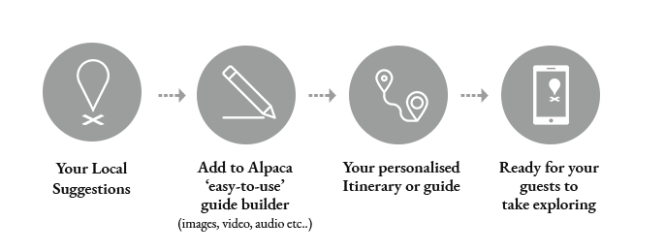

How hotels work is a multifaceted process, encompassing everything from the initial booking to the guest’s departure. Imagine stepping into a hotel—a world of seamless operations unfolding before your eyes. This article unravels the intricacies of hotel operations, demystifying the steps behind a smooth guest experience, from the moment a booking is made until the final check-out. We’ll explore the various departments, technologies, and strategies that contribute to a successful hotel operation. This article will break down the core functionalities into easily digestible sections, addressing common questions and providing actionable insight for anyone interested in hospitality or just curious about how hotels function.
The Booking Process: From Initial Inquiry to Confirmation
Initial Inquiry and Reservation
Hotels often use sophisticated online reservation systems or call centers to handle initial inquiries. The systems handle availability, pricing, and other relevant information. Guests are then guided through the booking process, confirming details like room type, dates, and special requests. Customer service representatives are integral to the booking process, ensuring a smooth and pleasant interaction.
Payment and Confirmation
Secure payment processing is crucial to ensure customer trust. Hotels typically use secure online payment gateways, adhering to industry best practices to protect customer data. Once payment is successfully processed, a confirmation is sent to the guest. This confirmation includes essential details like booking reference number, room details, and contact information, preparing them for their stay.
Room Allocation and Management
After the guest’s confirmation, the hotel’s system immediately assigns a room based on availability and guest preferences. A key aspect is the hotel’s room management system, which tracks room availability, updates reservations in real-time, and allocates rooms efficiently.
Pre-arrival Communication and Check-in
Some hotels offer pre-arrival communication options. Pre-stay e-mails can be beneficial for guests, outlining essential hotel policies and procedures or for offering special in-room amenities. The actual check-in process involves verifying the guest’s identity, and processing their details, potentially collecting special requests, or using a mobile check-in system for greater convenience.
Operations at the Front Desk: Handling Guest Needs
Guest Check-in and Check-out Procedures
Front desk staff are the primary point of contact for guests, handling check-in and check-out procedures. They use reservation systems to verify guest details, process payments, and answer any questions guests may have, ranging from parking issues to room service. Efficient front desk operations are key to creating a positive first impression.
Guest Service and Inquiries
Front desk personnel are also responsible for addressing guest requests and inquiries promptly. This includes arranging tours, booking transportation, or providing information about local attractions and amenities. Their responsiveness and knowledge of local services are critical.
Handling Complaints and Issues
Addressing guest complaints is crucial. The front desk team needs proper training and tools to resolve conflicts effectively. Quick solutions and empathetic responses can prevent issues from escalating and maintain guest satisfaction.
Utilizing Technology for Enhanced Operations
Hotels are increasingly using technology to streamline their operations, improving efficiency and guest satisfaction. This includes using systems for online check-in/check-out, mobile key systems, or digital concierge services.
Room Management and Maintenance: Ensuring Comfort and Cleanliness
Room Assignments and Maintenance Scheduling
Effective room management is crucial to maintaining a smooth operation. This includes keeping accurate records of room availability and coordinating with maintenance teams to ensure rooms are clean and ready for new guests.
Housekeeping Staff Training
Proper training is essential for ensuring consistently high-quality service. The training includes protocols for cleaning and maintaining standards, which can include sanitation practices, guest preferences, and the use of various cleaning tools.
Managing Inventory and Supplies
Hotels must manage inventory effectively. This involves ordering and storing supplies, such as linens, toiletries, and cleaning products, ensuring adequate stocks are available without overstocking.
Food and Beverage Services: Enhancing the Guest Experience
Restaurant and Bar Operations
Hotels often have restaurants or bars, requiring efficient management and service. Restaurant operations cover everything from managing staff schedules to food preparation and ensuring high-quality service standards.
Room Service and Catering
Room service is a valuable amenity offering guests convenience. Hotels need to effectively manage delivery schedules and food quality standards. Catering arrangements require meticulous planning and execution.
Revenue Management and Finance: Ensuring Profitability
Pricing Strategies and Yield Management
Hotels use data-driven pricing strategies, like yield management to optimize revenue. These strategies consider factors like demand, seasonality, and competitor pricing.
Accounting and Financial Management
Accurate financial records and efficient accounting processes are key to hotel profitability. A well-managed accounting system allows for accurate tracking of expenses, revenues, and overall financial health.
In conclusion, understanding how hotels work is crucial for both guests and staff. From booking procedures and room management to service delivery and revenue generation, each facet plays a vital role in the overall hotel experience. This comprehensive exploration has highlighted the intricate processes behind successful hotel operations. To dive deeper into any aspect, or for personalized hotel recommendations, consider visiting our website.